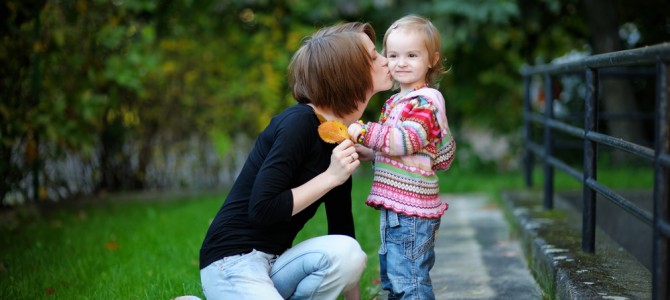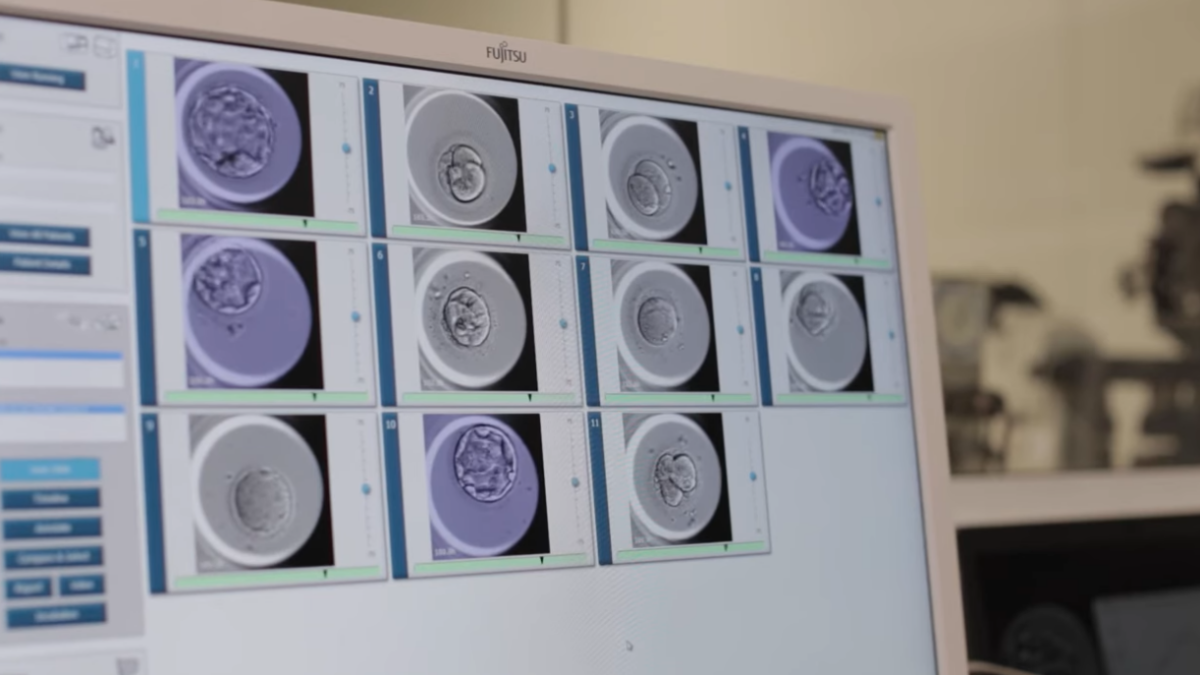An esteemed scientific journal appears to have been conned into publishing what appears to be a fake study on the effects of mommy kisses on their children’s boo-boos.
Kisses from mommy are not an effective way of remedying children’s boo-boos, according to a new study which was published online by the Journal of Evaluation in Clinical Practice. The study, which was allegedly conducted on 943 pairs of toddlers and their mothers, examined whether a kiss from a child’s mother after a minor injury significantly reduced the child’s distress.
“Maternal kissing of boo-boos is a common practice that appears to have no ability to reduce the distress of toddlers and may have significant untoward effects,” the anonymous authors of the study concluded. “On the basis of this study, we recommend a moratorium on the practice.”
In order to conduct the study, which would require the observation of children after experiencing minor injuries, the researchers wrote that they intentionally constructed scenarios in which children would hurt themselves. In one scenario, the researchers placed chocolate in an area where a child would likely bump his head trying to reach the chocolate. In another, they placed a child’s favorite object behind a heated coil so the child would burn herself trying to access the object:
To induce head boo-boos, a piece of chocolate was placed under a low table edge and the child would be allowed to crawl to the candy. Invariably, the child would then stand to eat the chocolate and would strike his or her head on the table edge. All tables were constructed of soft wood (pine or fir) and edges were appropriately rounded enough to guarantee that skin would not be broken. Hand boo-boos were induced by placing a favourite object (lovey) of the child just out of reach on a counter behind a heated coil. Attempts
to obtain the lovey would result in a noxious thermal stimulus to the fingertips. The coil was heated to 50 degrees Celsius (120 F) in order to produce a significant but non-damaging stimulus.
Towards the end of the research paper, the authors of the study congratulated themselves for this study design, calling it “brilliant in its simplicity and robust in its design.” Some of the children subjected to the alleged study were only 18 months old, according to the research paper..
Not only does the kissing of boo-boos not work, the paper’s authors concluded, it also produces several untoward effects:
First, the placing of the lips on the soiled appendages of toddlers likely puts mothers at a higher risk of acquiring viral and bacteriologic infections. Second, maternal resources are very limited, and time spent on delivering ineffective kisses to boo-boos means that maternal attention is not devoted to other activities that have clearly been shown to be beneficial to toddlers, such as the introduction of algebraic functions and the teaching of conversational Mandarin [8]. Most importantly, reliance on ineffective therapies may delay or prevent the delivery of proven and appropriate medical care, such as BacBe-Gone® antibacterial ointment and Steri-Aids® self-adhesive bandages [9].
In their study, the authors claim to be members of the Study of Maternal and Child Kissing (SMACK) Working Group, which they say is a subsidiary of Procter and Johnson, Inc., the maker of “Bac-Be-Gone ointment and Steri-Aids self-adhesive bandages.” Procter and Johnson, which is not a real consumer goods company, is an obvious mash-up of Procter & Gamble and Johnson & Johnson, two consumer packaged goods companies which sell health care items like bandages and ointments. The only contact information for the study’s authors disclosed in the research paper is a Gmail address. Bac-Be-Gone ointment and Steri-Aids also do not appear to be actual products available for sale. Additionally, many of the academic research references listed at the end of the study–including one article entitled “So what the hell is going on here?”–also appear to be fake.
The research article was published online on December 29, 2015. A manuscript of the paper was accepted by the Journal of Evaluation in Clinical Practice, a real publication owned by John Wiley & Sons, on December 10. John Wiley & Sons is a well-respected publisher of multiple academic and medical research journals.
After reading an abstract of the study on the website of the National Institutes of Health (NIH), a federal health agency that funds academic and medical research, The Federalist purchased a full copy of the study from the Journal of Evaluation in Clinical Practice in order to confirm that it was actually published by a peer-reviewed academic journal. According to the journal’s website, articles that are published online prior to being published in a full edition of the journal “have been fully copy-edited and peer reviewed[.]”
Dr. Andrew Miles, the editor-in-chief of the journal, did not respond to requests for comment prior to the publication of this article. An e-mail to the SMACK Working Group address listed in the paper inquiring whether the journal was in on the joke prior to the publication of the article was also not returned prior to the publication of this article. It is not known whether the article was published ironically or in jest by the scientific journal. The article contains no disclaimers warning that the paper and its underlying research might be a hoax.
In what appears to have been a subtle insult by the study’s authors, the full article lists only one keyword to categorize the study’s content and results: evidence-based medicine.
UPDATE: Dr. Andrew Miles, the editor of the Journal of Evaluation in Clinical Practice, responded on Thursday afternoon to The Federalist‘s inquiries about the article. The article, according to Miles, was “very clearly ironic.” Miles also identified the author of the satirical boo-boo kisses study as Dr. Mark Tonelli of the University of Washington in Seattle.
Miles’ e-mail response is reprinted below in full:
The article, which is positioned as the last paper in an issue which consists of over 60 major articles from leading authorities and institutions worldwide, and the latest in a very long series of annual thematic editions of the [Journal of Evaluation in Clinical Practice] JECP which have had a major impact on the course of the international [evidence-based medicine] EBM debate, is very clearly ironic and published with reference to the time of year, much as the [British Medical Journal] BMJ does with its own Christmas edition. (You remember the BMJ RCT of parachutes?!) However, the article has many lessons to teach to the now collapsing EBM brigade. If you are unsure of what these are (as appears from your e-mail to me) then my suggestion is that you contact the author, Professor of Intensive Care Medicine and Bioethics at the University of Wahsington, Seattle, USA, with the request that Dr. Tonelli illuminate matters for you. I feel certain that he will be more than happy to do so.
Cordially.
Professor Andrew Miles MSc MPhil PhD DSc (hc)
Editor-in-Chief, Journal of Evaluation in Clinical Practice









